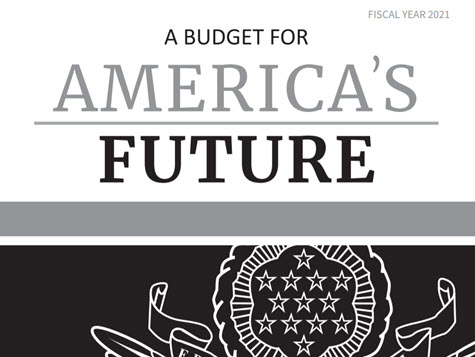
Legislative changes to the Paycheck Protection Program (PPP) signed into law today will ease restrictions on forgivable loans to small businesses seeking to retain and pay workers affected by COVID-19. (BGov, June 4)
- Under the CARES Act, a portion of PPP loans could be forgiven for an eight-week period after origination. (See “CARES Act and Implications for Real Estate”)
- The most significant rule change provided by the Paycheck Protection Program Flexibility Act (H.R. 7010) this week extends that time period that borrowers must spend their funds to 24 weeks, while preserving the ability to have the debt forgiven.
- H.R. 7010 passed the House (417-1) on May 28, cleared the Senate by unanimous consent on June 3 and was signed into law by President Trump today. (Roundtable Weekly, May 22 and AP, June 5)
The bill also:
- Replaces the “75-25 Rule” on the use of PPP loan proceeds for loan forgiveness purposes with requirements to spend at least 60% for payroll costs and up to 40% for covered mortgage interest, rent, and utility payments;
- Extends the PPP re-payment period to five years for small businesses that do not receive loan forgiveness;
- Allows PPP loan recipients to take full advantage of deferral of employment taxes through the end of 2020; and
- Provides borrowers a “safe harbor” from the loan forgiveness rehiring requirement if the borrower is unable to rehire an individual who was an employee of the recipient on or before February 15, 2020, or if the borrower can demonstrate an inability to hire similarly qualified employees on or before December 31, 2020; (Congressional Research Service summary, May 28)
Senate Majority Leader Mitch McConnell (R-KY) said additional technical fixes to the PPP will follow at the requests of Sen. Ron Johnson (R-WI), Senate Small Business and Entrepreneurship Chairman Marco Rubio (R-FL) and Sen. Susan Collins (R-ME) (RollCall, June 3)
Next COVID-19 Stimulus; Fed Expands Muni Loan Program
The Trump Administration is considering policy options for the next legislative response to the coronavirus pandemic. The Wall Street Journal reports a senior administration official stated this week, “We’ve been through the rescue phase and we’re now in the transitional reopening phase and I think generally speaking we’d like to move into a growth-incentive phase for the future economy.” (WSJ, June 2)
- White House aides, according the Journal, stated the nation’s mass unrest over police brutality and racial inequality, along with the progress of business reopening efforts, will influence the pace of discussions – but they do not expect the completion of a package until July.
- House Ways and Means Committee Chair Richard E. Neal (D-MA) on Wednesday said he is continuing negotiations with Treasury Secretary Steven Mnuchin on another round of coronavirus relief legislation that could include major infrastructure spending and tax credit proposals. (Law360, June 4)
- Neal said on June 3 that in addition to infrastructure investment, he intends to propose an expansion of new markets tax credits for private investment in low-income communities, low-income housing tax credits to build affordable housing, and historic rehabilitation tax credits for preservation purposes. (TNT, June 4)
- This week also saw the Federal Reserve expand the scope of its $500 billion a lending program for state and local governments to include smaller borrowers. (Fed news release, June 3)
- The Fed’s expansion of its Municipal Liquidity Facility (MLF) will now enable all U.S. states “… to have at least two cities or counties eligible to directly issue notes to the MLF regardless of population.” Governors from each state will also be able to select two bond issuers “…whose revenues are generally derived from operating government activities (such as public transit, airports, toll facilities, and utilities) to be eligible to directly use the facility.’ (MLF term sheet, June 3)
- The MLF expansion may now allow sparsely populates states to designate two areas hard hit by the economic repercussions of the pandemic, or bond issuers like New York’s subway system, to sell debt to the Fed as a way to maintain critical services. (New York Times, June 3)
The various policy response to economic impacts of COVID-19 will be a focus next week during The Roundtable’s Virtual Annual Meeting, which will include a discussion with Treasury Secretary Steven Mnuchin.
# # #






